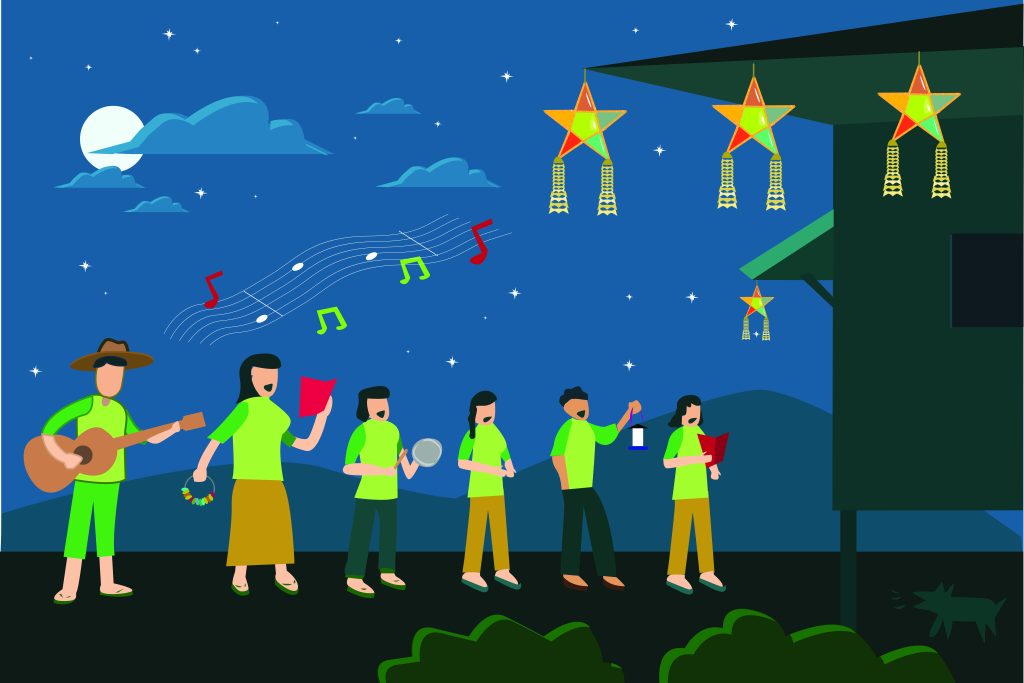
Philippine authorities are allowing “caroling” this Christmas in areas under Health Alert Level 2, the Interior and Local Government department said on Wednesday, November 10.
“Caroling” is a Filipino Christmas tradition that apparently started during the years of Spanish colonization when music are performed during the Christmas season and other religious feasts.
Interior and Local Government spokesperson Jonathan Malaya, however, said people who want to do “caroling” in households must be vaccinated against COVID-19.
“Under Alert 2, caroling is allowed provided that (minimum public health standard) is strictly followed and subject to the operational capacity of the venue of the caroling,” said Malaya.
He said carolers must wear face shield, although the policy may change if the government decides to lift the use of the protective equipment.
The Philippines on Wednesday registered 2,646 new COVID-19 cases with 4,029 new recoveries and 99 deaths.
Last year, the traditional practice of singing carols was banned in a bid to curb the spread of COVID-19.
Earlier this year, the Interior department said it would again ban the traditional house-to-house caroling due to the prevailing pandemic.
Christmas is one of the biggest holidays in the Philippines with Christmas carols heard as early as September 1.
Caroling is as much a part of Filipino Christmas as other traditions like the “Simbang Gabi” and “Noche Buena.”
In the city of Cebu, a member of the city council proposed the celebration of more early morning and evening Christmas Masses to prevent the overcrowding of churches.
Although the public celebrations of Masses are already allowed, parishes in the city are still encouraged to continue live streaming of the celebrations for people not to leave their homes.
The Vatican last year issued a decree allowing priests to celebrate up to four Masses on Christmas Day, on New Year’s Day, and on Jan. 6, Feast of the Epiphany.
The Congregation for Divine Worship and the Discipline of the Sacraments said the decree aims to allow for more Masses to encourage the participation of the faithful “in view of the situation brought about by the worldwide spread of the pandemic.”
Source: Licas Philippines
0 Comments